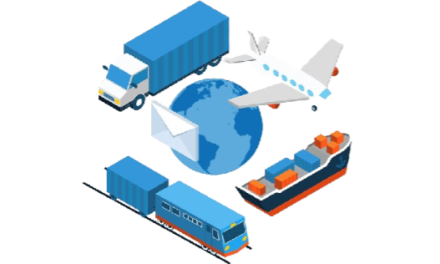Shipping/Logistic Integration
Shipping and logistic integration has emerged as a linchpin for businesses navigating the complexities of modern commerce. In an era dominated by e-commerce and global trade, the seamless coordination of shipping and logistics processes is more than a convenience—it's a strategic imperative. One key advantage lies in the streamlined operations achieved through automated order processing and real-time inventory management. By integrating systems, businesses can minimize manual errors, reduce processing times, and ensure optimal inventory levels. This not only enhances operational efficiency but also contributes to significant cost savings through improved resource utilization and optimized route planning. Moreover, the integration facilitates a level of supply chain visibility that is crucial for informed decision-making, risk management, and ultimately, cost efficiency.
Integration streamlines the entire logistics process, reducing manual errors and minimizing delays. This efficiency can result in cost savings by minimizing unnecessary expenses associated with delays, stockouts, and excess inventory.
Fast and reliable shipping is crucial for customer satisfaction. Integration allows businesses to provide accurate delivery estimates, track shipments in real-time, and offer various shipping options.
Integrated systems provide real-time visibility into inventory levels, helping businesses maintain optimal stock levels. This prevents overstocking or stockouts, reducing holding costs and ensuring that products are available when customers place orders.
Seamless integration facilitates quick and accurate order processing. This means that as soon as an order is placed, the necessary information is relayed to the logistics system, ensuring timely picking, packing, and shipping of products.
As small businesses grow, the demand for efficient logistics increases. Integrated systems can easily scale to accommodate a growing volume of orders, ensuring that the logistics infrastructure can adapt to the evolving needs of the business.
Small businesses that can offer fast, reliable, and cost-effective shipping gain a competitive edge. Integration allows them to compete with larger competitors and meet customer expectations, which is particularly important in the e-commerce space.
What Is Shipping/Logistic Integration & Why Is This Importance For Small Business?
Shipping/logistic integration refers to the seamless coordination and synchronization of shipping and logistics processes within a business's overall operations. It involves the integration of various aspects such as order processing, inventory management, transportation, and supply chain management to optimize the movement of goods from the manufacturer to the end consumer.
Efficiency and Cost Savings , Improved Customer Experience , Inventory Management , Order Processing , Scalability
ROILift In the fast-paced world of commerce, seamless shipping and logistics integration have become imperative for businesses aiming to stay competitive and meet customer expectations. The integration of shipping and logistics processes streamlines the entire supply chain, from order placement to final delivery. Through advanced technologies and interconnected systems, businesses can achieve real-time visibility into their inventory, track shipments, and optimize routes for efficient transportation. This integration not only enhances operational efficiency but also reduces errors and delays, resulting in improved customer satisfaction.
By leveraging automated systems, businesses can minimize manual intervention, lower costs, and enhance overall productivity. Additionally, integrated shipping and logistics contribute to sustainability efforts by enabling better resource utilization and minimizing environmental impact through optimized transportation routes. As the global marketplace continues to evolve, the adoption of robust shipping and logistics integration solutions becomes a strategic imperative for businesses seeking to thrive in the modern era of commerce.

Shipping and logistics integration encompasses the strategic coordination and harmonization of diverse logistics and shipping processes within a supply chain. The primary objective is to optimize efficiency and enhance overall performance. This integration is marked by its ability to streamline operations, minimizing redundant processes through task automation and synchronized data management. By eliminating duplicative efforts and ensuring seamless communication between different elements of the supply chain, businesses can achieve significant efficiency gains. The result is a more agile and responsive system that not only reduces operational costs but also enhances the overall effectiveness of the supply chain.
For Any Query. Give Us A Call Today At
Tell us about your project
Let us help you get your business online and grow it with passion
Unlock the complete potential of open-source frameworks by reaching out to us. Receive a tailor-made, content-manageable website designed specifically to meet your unique needs and requirements.
Client's Review
Frequently Asked Questions
Shipping/logistic integration is when different parts of shipping and logistics work together smoothly. It means making sure that ordering, managing inventory, and delivering goods are all coordinated well.
Shipping/logistic integration is vital for businesses because it helps them work better. It makes operations smoother, saves money, reduces mistakes, and lets everyone involved know what's happening in the supply chain.
Shipping/logistic integration makes orders happen faster by doing things like handling orders automatically, keeping inventory updated, and giving real-time updates. This leads to quicker and more accurate deliveries.
The main parts include handling orders, managing inventory, dealing with transportation, keeping track of things in real-time, and making sure different systems can talk to each other. It also means connecting online stores, warehouses, and shipping services.
E-commerce businesses gain a lot from shipping/logistic integration. It helps them send out orders faster, lowers the chance of mistakes in shipping, gives customers real-time updates, manages inventory better, and makes the whole buying experience better.
Common technologies include things like computer programs that let different systems talk to each other (APIs), electronic data systems for exchanging information (EDI), online platforms, and devices that connect to the internet (IoT). These tools help systems share information easily.
Yes, shipping/logistic integration services can be changed to fit what a business needs. Providers often offer solutions that can be adjusted to work with existing systems and fit the way a business works.


